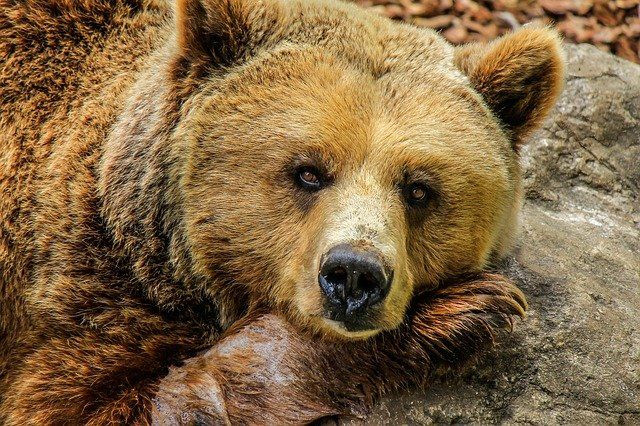Mother Bear, Cub Gunned Down By Russian Navy After Climbing On Nuclear Submarine, Video Stirs Outrage
KEY POINTS
- The viral video footage was published on Nov. 8
- The Russian Navy defended the criticism, saying they had no other option
- A hunting instructor was called to “neutralize” the bears
In what could be considered an example of the inept handling of human-animal interaction and opportunistic propaganda, a mother bear and her cub were gunned down in Russia, stirring outrage and criticism on social media.
The Russian Navy killed the animals after they climbed on a nuclear submarine that was docked off the eastern coast of the country, reported BBC. Although the date of the incident is not clear, the footage of the shooting was published on Nov. 8.
The submarine was docked at a base in Vilyuchinsk, a town that houses a squadron of Pacific fleet subs, on the far-east Kamchatka Peninsula in Russia.
The footage showed the mother and her cub swimming toward the submarine, and then sitting on its deck. The sound of gunfire can be heard before the cub is seen falling back into the water.
“There’s no other way, if you chase it out, it’ll wander into the villages. That’s how you fight bears in Kamchatka,” the voice behind the camera said, The Moscow Times reported.
The Russian Navy, which faced heavy criticism when the video became viral, stated there was no other option after the animals climbed onto the vessel.
A representative of the Pacific fleet explained that a hunting instructor was called to use “specialized weapons” to “neutralize” the animals. He said the bears had already been seen several times near the protected area reacting aggressively to people, Interfax reported.

“Surely they must have ways to 'scare off' the bears, what an indictment of the way we treat animals after being the cause of their environment (sea-ice) shrinking,” a person commented on Facebook. Many people expressed their outrage and anger in social media and considered it as an action that shows “total disregard for life.”
The region’s forestry management agency admitted that at least 50 aggressive bears have been killed so far in 2020, Interfax reported. According to the Wildlife Conservation Society, it is estimated that between 10,000 and 14,000 brown bears live on the peninsula, where they occasionally cross paths with humans.
© Copyright IBTimes 2025. All rights reserved.




















